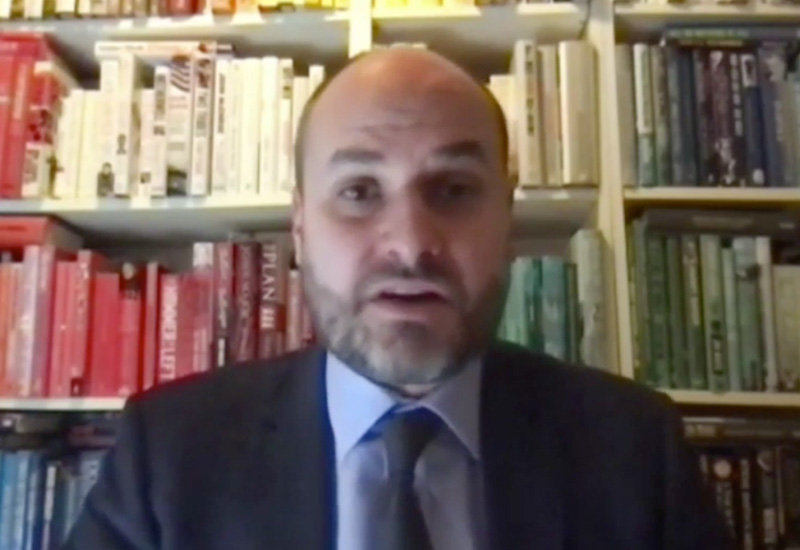
Wholesalers tell MPs of supply chain threat to hospitality restart
“Supply to all of the hospitality and leisure businesses that will be reopening later in the year is at perilous risk without support for wholesalers. I am not overstating the case, this is a crisis.”
That’s what FWD Chief Executive James Bielby told an influential Parliamentary committee on behalf of food and drink wholesalers as he pointed out the return from lockdown of the hospitality sector will not be possible without immediate government support for its supply chain.
Giving evidence to the House of Commons Environment, Food and Rural Affairs Committee’s investigation of government support for the hospitality sector, Bielby told MPs that wholesalers were running out of time and money – and may not be able to provide the stock necessary for restaurants, pubs and hotels to re-open when restrictions are eased.
Food Minister Victoria Prentis told the committee at a previous meeting in January that wholesalers didn’t believe they had had any sector-specific support.
“I think the comments made by Minister Prentis were extremely disappointing because that wasn’t an emotional response from wholesalers, it was a factual response,” said Bielby.
“We haven’t had any sector-specific support. She said it was too early to intervene in the sector, I would argue that it’s possibly getting too late now, especially towards the restart.
“It is going to be extremely difficult given the lack of cash and the lack of access to credit that every point in the supply chain needs. The businesses that we represent are based on invoice financing, so they will supply products to the end user on credit, receive that money, and then pay their suppliers.
“Without that being underwritten by government or an injection of cash, it is going to be extremely difficult to supply. You can’t just turn on the taps. We’ve got a debt crisis, we’ve got a credit crisis, we’ve got a cash crisis. I am not overstating the case, this is a crisis.”
He said wholesalers had been trading at a loss for nearly a year to maintain supply to hospitals, care homes and schools and contrasted the lack of support for the wholesale sector with the extensive financial and policy aid given to the large supermarkets, which have profited from hospitality’s closure.
“Supermarkets have had record sales at the same time as they’ve had policy skewed in their favour, while the wholesale supply sector has had nothing,” Bielby continued. “We have had no business rates relief, we have had none of this preferential treatment.
“What we have seen throughout the past year is a number of policy interventions which have benefited the supermarket supply chain. Clearly, when it came to food supply back in March last year, the government’s number-one priority was to keep supermarket shelves stocked based on the 80/20 rule given that’s where people shop.
“But we’ve seen that continue across a range of different interventions – so they had £2 billion worth of business rates relief, they’ve had extended opening hours, they’ve had the competition law waiver but perhaps most importantly, the hospitality trade has been given to them because of the restrictions that have been put in place.
“With curfews and the pubs closing at 10pm, people were able to go to the supermarket and then consume it at home, possibly not observing social-distancing rules that would be in place in the licensed trade. The free school meals debacle meant that when the government u-turned on its advice away from food parcels to a national voucher scheme, thousands of orders from schools were cancelled in wholesale. All of that trade was directly given to supermarkets.”
The Committee Chair, Neil Parish MP, said: “There’s no doubt that you are doing a public service by actually staying open and supplying food, especially to nursing homes, hospitals, schools. You’ve been hit by the nature not only of government decision, but the nature of the disease and the way it has reacted has directly affected your business, which wasn’t your fault. When Victoria Prentis comes before us again, I will make sure she addresses that point.”
FWD is asking the government to support the sector through:
- Business rates relief for food service wholesalers supplying the foodservice industry
- An Excess Stock Grant to help wholesalers recover money from stock lost from Covid restrictions and No Deal planning
- Regulatory alignment with the devolved nations, including replication of the Scottish Wholesale Fund
- Prioritisation by local authorities for foodservice wholesalers in urgent need of financial support

